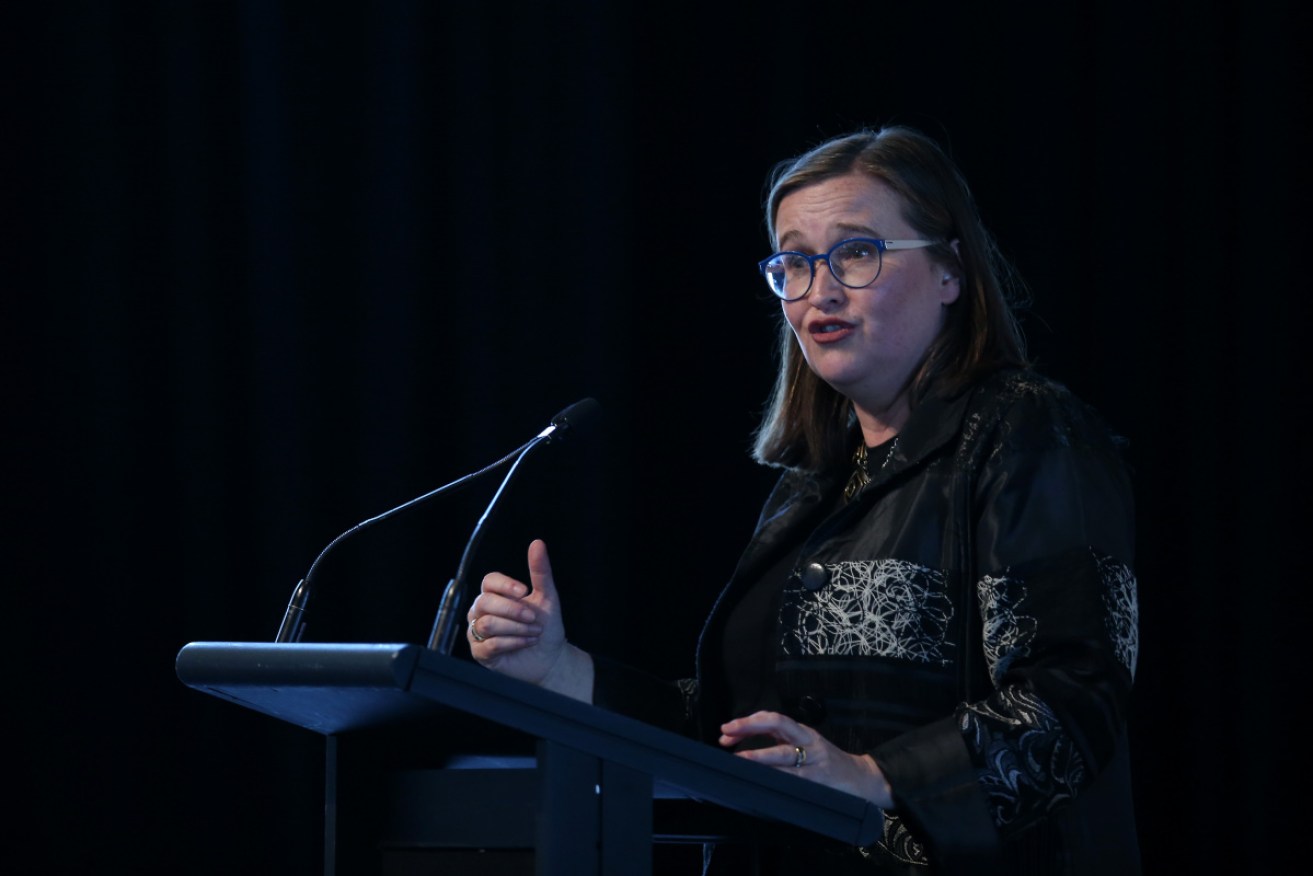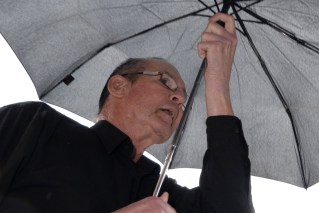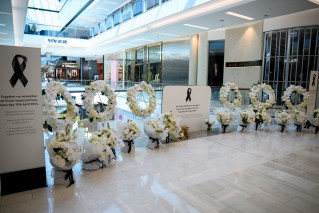Four in 10 women in politics report sexual harassment


Ms Jenkins praised Ms Higgins' "bravery" – after allegations by the former staffer led to the report. Photo: Getty
A damning report into federal parliamentary workplaces has found 40 per cent of women have experienced sexual harassment at work, with Australia’s sex discrimination commissioner recommending sweeping changes to how alcohol, complaints and behaviour issues are dealt with in politics.
Nearly two-thirds of female politicians have been harassed.
Women working in politics recounted stories that included being kissed against their will, ogled at work, belittled, and subjected to a “chauvinist” atmosphere in Parliament House.
Former prime minister Julia Gillard said the report, made public on Tuesday, proved “it’s time to change our federal parliament forever”.
The landmark ‘Set The Standard’ report from Kate Jenkins and the Australian Human Rights Commission, prompted by sexual assault and misconduct allegations made by former Liberal staffer Brittany Higgins and other women in politics, found an environment of sexism and mistreatment in the halls of power.
“I do often describe Parliament House as the most sexist place I’ve worked,” one respondent to the inquiry said.

Sex Discrimination Commissioner Kate Jenkins. Photo: AAP
“Young women, particularly media advisers coming in, particularly the younger women coming in, were like fresh meat and challenges.”
Of 1700 people working across Commonwealth Parliamentary Workplaces, 51 per cent said they had experienced at least one incident of bullying, sexual harassment or actual or attempted sexual assault.
“That figure is unacceptably high,” Ms Jenkins said.
Prime Minister Scott Morrison called the report’s findings “appalling and disturbing”, saying the government would respond to all 28 recommendations and calling for a multipartisan approach across major parties in federal politics.
“We all share in an ownership of the problems set out in this report, but we all share in implementing the solutions,” he said in Canberra.
“I wish I found [the results] more surprising. But I find them just as appalling.”
Ms Jenkins’ report set out disturbing findings, including:
- 40 per cent of women and 26 per cent of men in CPWs had experienced sexual harassment;
- 42 per cent of women and 32 per cent of men in CPWs experienced bullying, while 24 per cent of women and 14 per cent of men had experienced bullying and sexual harassment;
- 63 per cent of female parliamentarians experienced sexual harassment: Far higher than the 24 per cent of male parliamentarians, and the national average of 39 per cent for women;
- LGBTIQ+ people experienced sexual harassment at far higher rates than those identifying as heterosexual
The report also sets out numerous anonymous claims of assault and misconduct from people working in CPWs.
“The MP sitting beside me leaned over. Also thinking he wanted to tell me something, I leaned in. He grabbed me and stuck his tongue down my throat. The others all laughed. It was revolting and humiliating,” one person said.
“At after-work drinks [a senior party member] put his hand up my skirt,” said another.
Joining Mr Morrison at a Parliament House press conference, Minister for Women Marise Payne acknowledged Ms Higgins as a catalyst for the report. Senator Payne spoke of Ms Higgins’ “appalling experience” and thanked “so many others who have contributed”.
In her own statement, Ms Jenkins also praised Ms Higgins, saying “the impact of her bravery is immeasurable.”

Brittany Higgins at a rally outside Parliament House in March. Photo: AAP
In a statement via the Global Institute for Women’s Leadership at the Australian National University, Ms Higgins said hoped the Jenkins report “inspired immediate action”.
“I want to thank the many brave people who shared their stories which contributed to this review. I hope all sides of politics not only commit to but implement these recommendations in full,” Ms Higgins said.
In the same statement, Ms Gillard – who established the GIWL – called on parliament to change “forever”.
“We need a code of conduct and an effective way of receiving and acting on complaints. The Jenkins review gives us this,” Ms Gillard said.
“We need all political parties to work together with urgency and ambition and commit to deliver the bold reforms that are needed.”
Ms Jenkins’ report sets out 28 recommendations, including that political party leaders make a statement in parliament acknowledging problems of harassment and assault, and commit to accountability and action.
Other recommendations include setting stronger targets for diversity among staff and politicians, expanding support and complaint services for staff, creating an Independent Parliamentary Standards Commission.
Tweet from @Kate_Jenkins_
The report also recommends overhauling procedures in the parliamentary chambers, to eliminate sexist and discriminatory language and behaviour among politicians, as well as developing strict codes of conduct for parliamentarians.
Mr Morrison acknowledged “deficiencies” in standards of parliament and politics. He said there was a culture of working long and hard in Parliament House, but that should not excuse the behaviour detailed in the report.
That “‘work hard, play hard” culture is also analysed in the report, with Ms Jenkins examining how parliamentary staff – often young people who regularly travel long distances from home and work extreme hours – are exposed to alcohol and stress. Other recommendations include reviewing the parliament calendar and sitting hours “with a view to enhancing wellbeing”, as well as overhauling policies on alcohol standards and availability in politics.
Numerous submissions to the review directly talk about how alcohol pervades socialising and even work hours in politics.
“I thought it was normal to tell people that they should avoid certain people at events. I thought it was normal to tell people how to take alcohol to remain safe. Now that I look back on it, that is insane,” one person said.
“Members of parliament have gone onto the floor of parliament to vote under the influence of alcohol – something that would be illegal in most workplaces,” said another.
One person told the review about people becoming “drunk on free booze” in politicians’ offices on sitting weeks.
“You’ve got this room of 20-year-olds with a 60-year-old man … plying them all with alcohol in an enclosed room, in a professional office building. It’s not a recipe for good professional behaviour,” they said.








